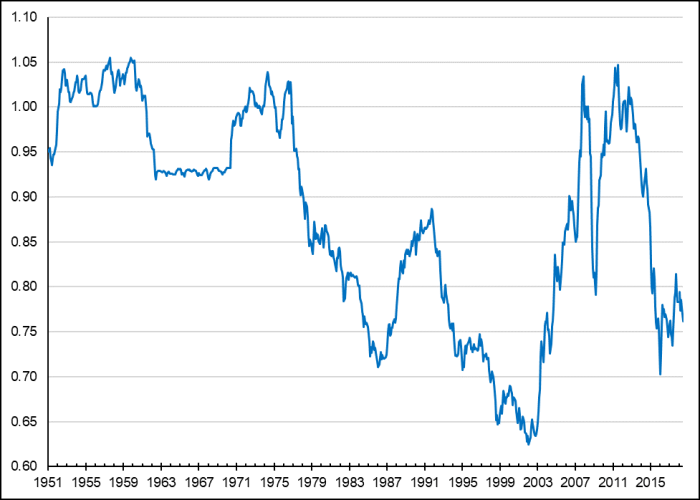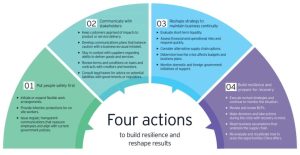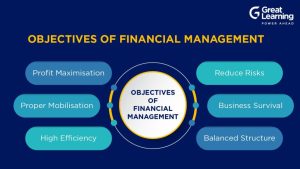Need To Know About The Canadian Exchange Rate

Whether you like it or not, if you have a company and want to pay with credit card and debit card, you must pay the exchange fee.
Unfortunately, for Canadian business owners, Canada’s exchange rate is the highest in the world.
During the period of infectious diseases, cashless transactions and online purchases increased dramatically. With the deepening of this problem, the owners finally paid more exchange fees.
A recent survey conducted by the Canadian Federation of Independent Enterprises(CFIB) shows how difficult it is for owners. 78% of respondents said that the credit card fees they paid were not a burden to their enterprises.
In addition, in the survey of CFIB members, the government asked how to help small business owners, and 51% responded that “credit card acceptance related fees” should be reduced.
In fact, this problem has become so serious that the Canadian government has committed to intervene and take action.
In 2020, due to the voluntary signing between the federal government and credit card companies, the swap ratio decreased, but the decline was negligible from 1.5% to 1.4% on average for each transaction.
The Ministry of Finance of Canada negotiated with stakeholders including small business owners last year to further reduce exchange fees and avoid excessive fees paid by small business owners.
However, so far, these negotiations have not made much progress. The 2022 federal budget only includes a vague, two word introduction to the issue, in which the government said: “We are committed to reducing the cost of credit cards. We will continue the current negotiations with stakeholders.”
Sadly, some payment processing providers take advantage of this situation to try to trick business owners with false exchange rates.
Nevertheless, when we try to do the best for small business owners, we still want to publish an article to help them better understand this problem.
Therefore, if you want to know more about Canada’s exchange rate, please read on. In this article, we will eliminate one of the biggest myths about what exchange rate is, how to calculate it and the cost, so that we can avoid being the victim of false statements.
What is exchange rate?
Another term for handling fees or transaction fees, “interchange fees”, refers to fees paid by business owners in debit and credit card transactions.
Typically, these items are charged based on fixed costs, ratios or combinations of transactions.
The exchange rate usually represents the average rate of these costs.
The interest rate is determined by several factors, including the level of risk associated with the transaction.
For example, for card(point of sale) transactions, that is, customers directly pay with credit cards when they go to the actual place, the exchange rate is often low. Because these transactions involve PIN entry, signature collection or chip scanning, they are considered to be less risky.
The exchange rate for regular payments is also often low. Because the amount involved in this transaction is generally small and repeated, it is also considered as low risk.
In addition, non-profit organizations and charities also have specific exchange rates, which are often very low.
On the other hand, cardless transactions(such as customers’ purchases via the Internet or telephone) are often considered more dangerous and therefore higher.
I think these fees are necessary because banks and other companies that issue credit cards help reduce risks and encourage the use of such payment methods.
However, many businesses believe that these fees are artificially raised by the card issuer. Unfortunately, they may not be wrong.
How about the exchange fee?
The calculation rate of the interchange fee is determined by the credit card company.
These interest rates are adjusted regularly according to a series of complex factors, including authorization costs, capital turnover costs, interest rates and risks related to approved payments, including fraud and bad debt write offs.
This often happens once a year or half a year. For example, if they change the interest rate, Visa and main credit cards tend to change once in the spring, once in the fall, and twice a year.
The interchange fee paid by the business owner includes not only the issuer, but also the payment gateway, payment processor, and hundreds of different small fees charged by multiple stakeholders, including the business owner bank.
At the same time, the rate will vary depending on the type of business that charges.
Unfortunately, the enterprises that usually pay the highest interest rate are small and medium-sized enterprises, because they are not as capable as large transnational enterprises to negotiate with card issuers.
What is a good exchange rate?
You won’t believe that we are often asked such questions by those who try not to pay for this inflated exchange rate.
In addition, you will be surprised at how difficult it is to explain the reality to dissatisfied owners.
To be honest, it is very difficult to recover the damage caused by unscrupulous companies. These companies will sell their services by all means. Sadly, this is nothing new. This has been going on for many years.
An article in the Toronto Star newspaper pointed out that CFIB surveyed nearly 12000 members in 2019 and asked about their experience with independent credit card processing providers.
Nearly one third of small business owners said they had received harassing calls from these companies, 18% said they had distorted themselves, and 16% said they had “engaged in deceptive sales”.
In any case, the fact is that if you are not the head of an influential large enterprise, you can directly negotiate with the person who sets the exchange rate. Otherwise, you will not be able to reach an agreement on this fee.
Trust us. We know that it is easy to be attracted by exchanges with these fees, but the reality is that if someone tells you that they can provide you with better transactions at the exchange rate, whether it is banks, payment processing companies or other companies, they are lying.
Are you tired of dealing with dishonest payment processors? Have they made false statements that cannot be fulfilled? Our mission is to do the best for business owners and provide customers with absolutely clear information. Please contact us immediately to simplify the payment process.








